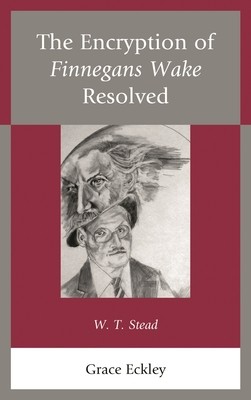
- We will send in 10–14 business days.
- Author: Grace Eckley
- Publisher: Hamilton Books
- ISBN-10: 0761869190
- ISBN-13: 9780761869191
- Format: 15.8 x 23.1 x 3.1 cm, hardcover
- Language: English
- SAVE -10% with code: EXTRA
Reviews
Description
At risk of life and reputation, the reform journalist W. T. Stead (1849-1912) exposed child vice and white slavery in London and established age 16 for statutory rape. Concluding the 1914 Portrait, Joyce saluted the "Old father, old artificer, stand me now and ever in good stead" and set the path of future works. The exemplary life and devotions of Stead provided James Joyce with a model, a theme, and a purpose. Joyce integrated Steadfacts with his own personal emerging autobiography and interpretation of the ongoing Irish national, international, and even cosmic events. In this book Eckley uses new sources to unravel forgotten languages, motifs, and metaphors and recognizes "obscurity" as a "chrysalis factor" in Joyce's Finnegans Wake to illuminate Stead's influence on Joyce. This book of Finnegans Wake criticism will open paths for exciting new efforts in studying Joyce.
EXTRA 10 % discount with code: EXTRA
The promotion ends in 20d.07:16:28
The discount code is valid when purchasing from 10 €. Discounts do not stack.
- Author: Grace Eckley
- Publisher: Hamilton Books
- ISBN-10: 0761869190
- ISBN-13: 9780761869191
- Format: 15.8 x 23.1 x 3.1 cm, hardcover
- Language: English English
At risk of life and reputation, the reform journalist W. T. Stead (1849-1912) exposed child vice and white slavery in London and established age 16 for statutory rape. Concluding the 1914 Portrait, Joyce saluted the "Old father, old artificer, stand me now and ever in good stead" and set the path of future works. The exemplary life and devotions of Stead provided James Joyce with a model, a theme, and a purpose. Joyce integrated Steadfacts with his own personal emerging autobiography and interpretation of the ongoing Irish national, international, and even cosmic events. In this book Eckley uses new sources to unravel forgotten languages, motifs, and metaphors and recognizes "obscurity" as a "chrysalis factor" in Joyce's Finnegans Wake to illuminate Stead's influence on Joyce. This book of Finnegans Wake criticism will open paths for exciting new efforts in studying Joyce.


Reviews